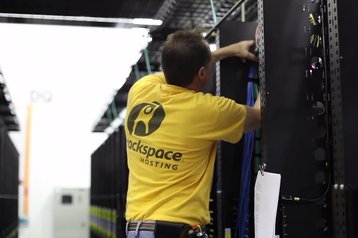Rackspace Technology saw its share price plummet by 20 percent a day after its initial public offering (IPO), and its descent has continued in the following days.
The company priced its shares at $21 each in Tuesday’s public offering, raising $703.5 million, with investors including mutual fund managers BlackRock, Fidelity, and Norges Bank. This put its share value in the bottom range of what it had originally planned; it then dropped to $16.17 the following day, which, according to data compiled by Bloomberg, made it this year’s worst first day of trading on a US exchange for an IPO raising more than $100m.
At the time of writing, it is recorded at $15.8 a share, or 25 percent below IPO price.
Racking up debts
Rackspace Technology initially went public in 2008, before being bought out by private equity firm Apollo Global Management for $4.3 billion in 2016, as its organic growth slowed and debt levels increased.
The company had moved away from web hosting and tried to compete with public cloud providers, to little success.
It has since shifted its offering to multi-cloud technology services, which CEO Kevin Jones said puts it out of competition with the likes of Amazon Web Services, Microsoft, and Google.
In June, it tried to encapsulate this change of direction by rebranding itself, changing its name from Rackspace to Rackspace Technologies.
The company now has almost $4bn in debt, according to The Financial Times, $600 million of which it says it will pay off using the IPO proceeds.
Despite its attempts to capture the market, Rackspace has recorded consecutive losses, totaling $48.2m on revenues of $652.7m in Q1 of this year, and a net loss of $102.3m in the whole of 2019, against revenues of $2.44bn.
The news of its poor IPO performance comes despite the coronavirus causing more companies to seek the services of cloud providers, encouraging investment in the sector.
Despite this, Chief Executive Officer Kevin Jones said that he was pleased with how the IPO process went, and said that innovation in the technology industry is what currently drives valuation.




